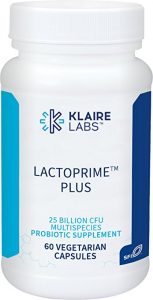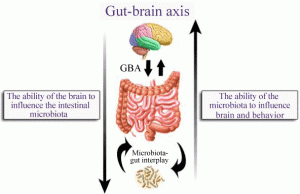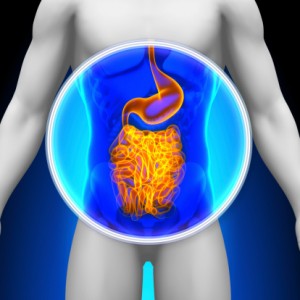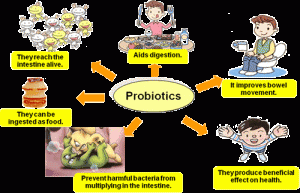To have candida in the bowels is normal; the problems from too much candida arise when the environment of the gut is compromised, allowing for an overgrowth of candida or undesirable bacteria (Small Intestinal Bacterial Overgrowth “SIBO”). The worst thing we could do at this point is throw antibiotics or other toxins into the mix, further disrupting and wiping out the inhabitants of our microbiome whose job it is to keep things like candida in check.
 But let’s start at the beginning.
But let’s start at the beginning.
What is candida albicans?
Candida is a fungus that lives in our bowels and, along with a trillion or so bacteria, assists in digesting what we eat. When there is a thriving, multi-strain population of bacteria in our gut, then everyone does their job of breaking down food into nutrients for delivery to our cells and all is in harmony and we feel good.
Unfortunately, common substances in our modern day world can damage and even wipe out the entire population of our personal microbiome. All those lights snuffed out in a single dose of antibiotics, for example. Puff. And there goes our digestion.
Once digestion goes downhill, you can be pretty sure that the absorption and assimilation of nutrients into our cells is compromised, too. Now deficiencies are bound to occur, forcing the body to steal minerals and nutrients from other systems in order to keep all-systems-go for as long as possible. Until there’s no more delaying the inevitable, and symptoms begin to appear.
But I digress.
Candida overgrowth does not require antibiotic treatment.
The laws of science tell us that nature abhors a void. Wipe one species out and another will move in to take their place. In a healthy gut, candida lives and works alongside bacteria to break down the food that we eat.
Since candida overgrowth and the varied symptoms that might accompany that (from vaginal discharge and itching to dysfunctional bowels, fatigue, rashes, or coating on the tongue) is an indication that our insides are out of balance, our goal for health should be to repair the environment of the gut in order to re-establish a healthy microbiome full of lots and lots of bacteria. I’ve read that we have more bacteria in our gut than cells in our body, though the National Institutes of Health now say it’s about equal. Think about that for a second: that’s still an awful lot of bacteria inside us.
Once we realize that we need more bacteria, not fewer, to heal from a candida overgrowth and regain our health, it starts to make sense that instead of reaching for antibiotics, we should focus on ingesting more probiotics to rebuild our microbiome rather than wipe it out.
I’m a fan of mixing it up and adding in as many different strains of bacteria as possible, including the Lactobacillus strain of bacteria that scientists have found keeps candida in check.
What else could cause candida overgrowth?
Anything that disrupts the gut environment. Besides antibiotics and other pharmaceuticals, processed foods, soft drinks, and other artificial ingredients in our everyday foods can disrupt the functioning of our microbiome. Check out my TED Talk, “Poisons in Our Everyday Foods,” for details.
Another cause that is often overlooked could be parasitic infection. Again: antibiotics or toxic pharmaceuticals are not the best way to evict parasites because they will wipe out the microbiome along the way. One G.I. doc told me that using a toxic antiparasitic medication like Flagyl to kill parasites was like using a shotgun to kill a mosquito: you might get the bug but you’ll have a lot of collateral damage from all the buckshot.
Could just taking probiotics take care of a candida overgrowth problem?
Maybe. It depends on how much damage there is in the gut, how cleanly we eat, and if food sensitivities are causing inflammation. It may be advisable to contact me for a free initial phone consultation to see exactly what’s going on in your case.
Regardless, taking probiotics will not cause any harm, though you may have to do some trials to discover the ones that make you feel good. Be aware that many probiotic brands include a fiber called inulin that bothers a lot of people, so if your probiotic brand isn’t making you feel good, switch to another one.
Studies are linking the health of the microbiome to everything from mental health to multiple sclerosis. We should be embracing the bacteria living inside us, not trying to kill them.





